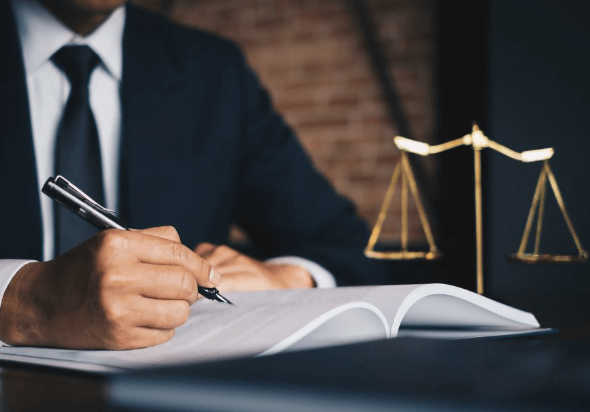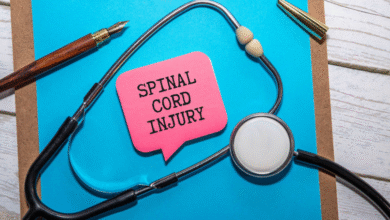Choosing the Right Attorney for Your Legal Needs

Everyone understands that judicial issues, whether individual or organizational, can be very hectic. The issues at stake are always very sensitive and the laws are usually very complicated especially to anybody who has no knowledge about the legal procedures to be followed. But this is where an experienced attorney can come in handy and do the job in the best way possible. Hiring the right attorney is about more than just picking the right specialty; you want an attorney who is honest and can be, and will be, in touch with your case and you.
This paper seeks to discuss what attorneys do, how to identify the right attorney for your case and/or the right qualities of a good attorney.
Understanding the Role of Attorneys
Lawyers are legal persons with their particular education, who are able and ready to advise clients and become legal representatives to defend them. They operate within a broad range of these legal practices; Family law, criminal law, business and commercial law and civil law. Here are some core responsibilities of attorneys:
- Providing Legal Guidance: Lawyers assist clients in acquiring particular knowledge regarding their legal obligations and freedoms. They analyze situations, translate legislation, describe existing choices and offer guidance considering the circumstances.
- Representing Clients in Court: In a trial proceeding, a hearing or even a settlement conference legal representatives act as spokespeople for their side. This involves giving evidence, cross examining witnesses or making impressive appeals to the jury.
- Drafting and Reviewing Documents: Contracts, wills, leases among other legal papers need to be written in the best manner possible in order not to lead to future misunderstandings. Lawyers guarantee that the above-stated papers are legal and relevant to their clients’ desires.
- Negotiating Settlements: The law practitioners can use engagements to solve disputes without the time and cost of having to go to trial but at the same time covering the interests of the client.
- Specializing in Legal Areas: Family law to intellectual property law it is common that after getting a license many practice in certain areas, offering services custom-made to a given field.
See also: What to Expect When Hiring a Juvenile Defense Lawyer
Why Hiring the Right Attorney Matters
Not all legal matters are the same and neither are attorneys. Hiring the wrong attorney could lead to poor advice, unnecessary expenses or even a loss in your case. Conversely, the right attorney can guide you through legal complexities, ensuring you understand every step and maximizing your chances of success.
Consider these scenarios where an attorney is crucial:
- Navigating the federal court system, such as the US District Court Oklahoma, requires specific knowledge of federal laws and procedures. An experienced attorney in this area ensures your case is handled correctly.
- Family law matters, such as divorce or child custody disputes, require sensitivity and a focus on mediation.
- Business disputes, including contract violations, need attorneys skilled in corporate law to protect your assets and reputation.
By matching an attorney’s expertise to your case’s requirements, you can feel confident in their ability to represent your best interests.
Key Qualities to Look for in an Attorney
The attorney you choose should not only have the right qualifications but also align with your expectations and preferences. Here are some essential qualities to consider:
- Experience and Expertise: Ensure the attorney has extensive experience in cases similar to yours. Specialization in a relevant field of law is a strong indicator of their capability.
- Strong Communication Skills: Legal jargon can be confusing. An attorney should explain complex terms in plain language, ensuring you fully understand your case.
- Reputation and Reviews: Client testimonials and professional references provide insight into an attorney’s reliability, professionalism and success rate.
- Availability and Responsiveness: A good attorney prioritizes your case and responds to your inquiries promptly.
- Ethical Standards: Attorneys are bound by professional codes of conduct. Choose someone with a history of integrity and respect for their clients.
- Reasonable Fees: Legal representation can be expensive, so it’s crucial to find an attorney with transparent and reasonable fee structures.
Steps to Choose the Right Attorney
Selecting an attorney requires some homework to be done and thorough scrutiny. Follow these steps to make an informed decision:
1. Identify Your Legal Needs
The first of these is to determine the kind of legal help that you need. For instance, a trial on a personal injury claim is not going to be similar to a commercial real estate closing. Lawyers generally focus on one or multiple branches of the law for example criminal law, business law or succession law.
2. Research Attorneys in Your Area
It is easier to start by preparing a list of several attorneys that practice in your region. Go to online directories, check the list of attorneys on the website of the bar association or seek recommendations. In case your issues involve federal laws, on top of that, confirm that the attorney is acquainted with courts such as the US District Court in Oklahoma.
3. Verify Credentials
Searching the attorney’s license and any discipline on your state’s bar association website is also important. This helps in making sure that they are professionals of law and are being allowed by the law of the country in which you are located to practice law.
4. Read Client Reviews
It is recommended to read the experiences of the client in other platforms with a possibility of getting more information about the strengths or weaknesses of a certain attorney. Search for whatever is repeated either positive, in the form of complimenting on good communication, or negative, in the form of complaints about lack of responses.
5. Schedule Initial Consultations
Many attorneys offer free or low-cost initial consultations. Use this meeting to ask questions, assess their approach and determine if they align with your needs. Some key questions to ask include:
- How much experience do you have with cases like mine?
- What is your proposed strategy for my case?
- What are your fees and what additional costs might I incur?
- How will you communicate updates about my case?
6. Compare Your Options
After meeting with potential attorneys, compare their qualifications, communication styles and fees. Choose the one who best meets your needs and makes you feel confident in their abilities.
Common Mistakes to Avoid When Hiring an Attorney
- Choosing Based on Price Alone: While cost is a factor, the cheapest attorney may not provide the best representation. Focus on value rather than price.
- Failing to Check References: A reputable attorney should be able to provide references or case examples demonstrating their success.
- Ignoring Specialization: Hiring a general practitioner for a highly specialized case can reduce your chances of success.
- Rushing the Decision: Take the time to research and evaluate your options thoroughly.
Preparing to Work with Your Attorney
Once you’ve chosen an attorney, it’s important to establish a strong working relationship. This involves:
- Providing Complete Information: Share all relevant details about your case, even if they seem minor.
- Understanding Your Role: Attorneys handle legal strategies, but your cooperation is crucial in gathering evidence or attending meetings.
- Maintaining Open Communication: Regular updates and discussions ensure everyone stays on the same page.
Conclusion
Choosing the right attorney is one of the most important decisions you can make when dealing with legal matters. By considering factors like expertise, reputation and communication skills, you can find someone who will effectively represent your interests.
For cases involving federal courts, such as the US District Court in Oklahoma, ensure your attorney has the necessary experience to navigate complex legal systems. With the right legal representation, you can face your challenges with confidence and achieve the best possible outcome.





